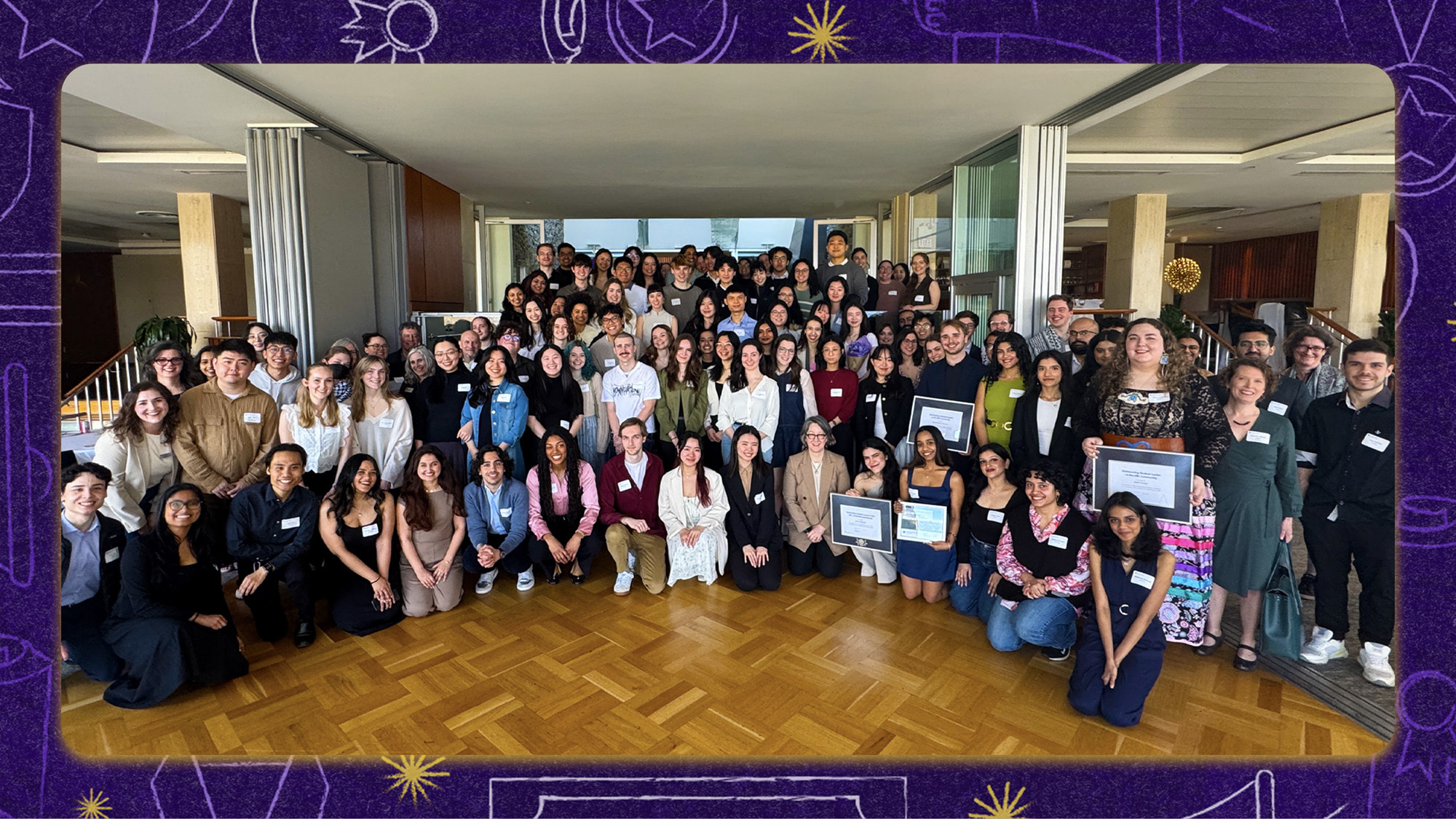Jonathan Pagtakhan found that a BA plus self-confidence goes a long way.
Jonathan graduated from UBC in 1998 with a BA in Economics. Since the summer after his first year at UBC, he worked part-time in the banking industry.
Through this work experience, he gained great clarity and confidence that this was the right field for him. He has set future career goals for himself such as being in management and joining the executive ranks. He currently balances his life by regularly indulging in the arts and sitting on the Board of Directors of non-profit organizations in our community.
When he graduated, he had a clear idea of what he wanted to do because of his work experience and networking contacts. In fact, it was largely through such contacts that he secured his current position as a Financial Advisor for CIBC Imperial Service. In addition, he has been able to strengthen his business relations and develop rapport through his clients’ shared appreciation of the Vancouver Symphony Orchestra (VSO).
If you are interested in pursuing a similar career path, Jonathan recommends that you take the Canadian Securities Course by correspondence while you are at university and that you gain experience with entry-level positions as a Teller or Customer Service Representative. In his experience, if you combine hard work and networking, you will be well on your way to jump-starting an exciting career!
What is your job title?
Financial Advisor, CIBC Imperial Service / CIBC Investor Services Inc.
What other job titles have you had leading up to this one?
Customer Service Representative; Financial Services Officer; Financial Services Manager
Can you give me an overview of your job description and some of the day-to-day tasks?
I manage a portfolio of approximately $100 million made up of approximately 1200 clients. I provide financial advice concerning all aspects of my clients’ financial health such as cash flow, credit, investments, and protection planning. I strive to find a balance between portfolio profitability and growth.
My daily tasks include: contacting clients to identify their immediate needs, uncovering future business opportunities, obtaining referrals, approval of loans and mortgages, making investment recommendations, and some paperwork. In a nutshell, I help clients fulfill their dreams and achieve their desired lifestyle.
What aspects of the job are most important and satisfying to you?
First, I enjoy dealing with clients from various backgrounds and experiences. I have made friendships that will last a lifetime. In fact, I have been invited to be the master of ceremonies at a client’s wedding this December, which is a huge honour.
Second, I’ve been given a huge responsibility and managing a portfolio of this size is financially rewarding.
What aspects are least satisfying to you?
Administrative tasks such as paperwork.
Did you know before you started the job what it would be like?
Yes, I had a clear picture because of my networking contacts at the Bank of Montreal, and that is also how I got my current job. My previous Assistant Branch Manager at Bank of Montreal became a General Manger with CIBC Imperial Service and he told me all about the job before I applied. Networking was a huge factor in my landing this job, as it is in many industries.
Is this the type of job you see yourself in long term?
I hope to one day coach and motivate a sales team of my own so that they may be successful. I strive to become an effective leader within the organization.
What salary range could most BA graduates expect in this field?
Entry-level employees (ie. customer service representatives and personal bankers), typically earn between $20,000 – $35,000.
At the financial advisor level, although I can’t disclose any figures, there is a reasonable base salary plus performance bonuses that can be quite substantial.
How long have you been working here?
Four and a half years in this particular job with CIBC Imperial Service, but I’ve worked in the banking industry for over nine years.
Why did you choose UBC?
I always knew I’d either go to UBC or SFU. I chose UBC because in my mind it was a bigger, better university and I thought it would carry more recognition and prestige that would benefit me long-term.
When did you start post-secondary education?
September 1994, immediately after graduating from high school.
When did you graduate from UBC?
In November 1998.
How did you choose your major?
I went back and forth on that decision for a while. In my first year I took courses in pre-Commerce, as I thought I might go into Accounting. However, I also took courses in Economics and Philosophy and after deciding that Accounting wasn’t for me, my choice in major came down to those two.
I really enjoyed both, but decided that Economics would give me a better foundation, as I knew that I would work in the business sector after I graduated.
Did you ever change your mind about your Major/Minor?
Yes. As I said earlier, it came down to a choice between Economics and Philosophy. At the end of my third year, I declared my major in Economics and was happy with that choice.
I also discovered Theatre in third year and decided to take a number of elective courses in that because acting has always been a passion of mine.
Why did you decide to major in the subject you chose?
I thought that Economics would have more of a real world application in my case, because I knew I wanted to go into banking and finance. I had been working at the Bank of Montreal since the summer after my first year at UBC. I knew early on that I was in the right industry for me.
Did you have an idea of what you would do after graduation?
Yes, it was very clear. While working at the bank, I knew I wanted to be part of the sales team and eventually in management, so it was a matter of moving up the corporate ladder by networking and taking applicable courses, both inside and outside of those required by my major.
What did you think were the options for BA graduates?
I thought the world was available to me and that anything was possible. I still believe that to be true.
What were your other interests in high school? University?
I really enjoyed theatre back in high school and went back to it in third-year university. I am also interested in the VSO, all kinds of expressions of music, and the arts.
Were you involved in any extra-curricular activities while at UBC?
I was involved with the Filipino Student Association (FSA). I took part in a few planning activities for events, but didn’t have much time to devote to that group as I was also working part-time. I also spent time socializing and developing friendships on campus with the new people I met in my classes.
Did involvement in extra-curricular activity help you gain experience or skills that helped you to find or secure your current job?
I think so. My recent appreciation of the VSO has helped me to relate to my clients better. I often see them at the symphony and that has helped me to develop rapport and strengthen business links.
Did you ever feel afraid or worried about what kind of career or work you could find with a BA?
No. I felt pretty confident.
Did you plan to be where you are now career-wise?
At this point in my life, yes.
How important were your grades in terms of landing your current job?
Not as important as I thought. Employers are more concerned about the fact that you’ve completed your BA, as doing so guarantees them that you have refined learning skills. I thought that grades were very important. I got straight A’s in high school, but not in university.
However, it never came up in an interview. I think it’s much more important to be sociable, confident, and to be able to show that you can apply your skills. There must be a balance between academic performance and what practical skills you can bring to the workplace.
What skills from your Arts degree did you bring to your current job?
Multi-tasking, time management, prioritizing, effective communication, and the ability to compartmentalize ideas.
Is this the kind of job that someone with a Bachelor’s degree can do?
Yes, absolutely. You can enter the banking industry as a Customer Service Representative while you are a student, like I did. Then if you express an interest in developing a career in banking, you can be sponsored to take the Canadian Securities course, a job requirement.
If you show enthusiasm, confidence and aptitude, believe me, Human Resources will be interested in moving you forward.
What would you recommend that students interested in this field do while in school to better their chances of finding work in this field?
To do my job, you must be licensed as an Investment Advisor, and to get licensed, the first step is to have passed the Canadian Securities course.
I would recommend beginning the Canadian Securities course while in university if you can. Commerce and Economics majors may find that some of the information overlaps with course material, but it really helps to understand the information as it can jump-start your career.
Also, look for entry-level positions as a Customer Service Representative, then work hard, be driven, and expand your network. It’s a small community and those in management will take notice.
What is the worst thing a student could do?
Just stay home and study. It’s like dating – if you want to be in a relationship, you have to get out there. Career development is no different. Make contacts, get involved, gain confidence… put yourself out there and you can’t go wrong.
Looking back, is there anything you would do differently while at university?
I think I might have pursued a minor in a different department. It is always better to be well-rounded academically by having a background in different fields.
Any advice to current students?
Keep your options open. Don’t think you are limited by your choice of discipline. Your Bachelor of Arts skills, specifically your ability to learn and adapt to constantly changing environments, are transferable to all kinds of sectors, so don’t let that stand in your way.
Identify what motivates you, be passionate in what you do, be confident about your abilities, and ask questions. Get out there and explore!


